- Pima Medical Institute is a highly experienced and proven leader in health care education. For more than 35 years, Pima Medical Institute has offered specialized, quality healthcare training that is quick and affordable, and has served the San Diego community at our Chula Vista campus since 1998. In Chula Vista, we offer medical training in medical training in Chula Vista certificate programs like dental assistant (california), medical assistant, pharmacy technician, veterinary assistant.
School Highlights
Pima Medical Institute-Chula Vista serves 1,038 students (100% of students are full-time).
The college's student:teacher ratio of 15:1 is lower than the state community college average of 32:1.
Minority enrollment is 84% of the student body (majority Hispanic), which is more than the state average of 77%.
Quick Stats (2025)
- Enrollment: 1,038 students
- Student:teacher ratio: 15:1
- Minority enrollment: 84%
- Source: Integrated Postsecondary Education Data System (IPEDS)
School Overview
The teacher population of 67 teachers has stayed relatively flat over five years.
Pima Medical Institute-Chula Vista
(CA) Community College Avg.
Carnegie Classification
Special Focus Two-Year: Health Professions
Baccalaureate/Associate's Colleges: Associate's Dominant
Institution Level
At least 2 but less than 4 years
At least 2 but less than 4 years
Institution Control
Private for-profit
Public
Total Faculty
67 staff
294 staff
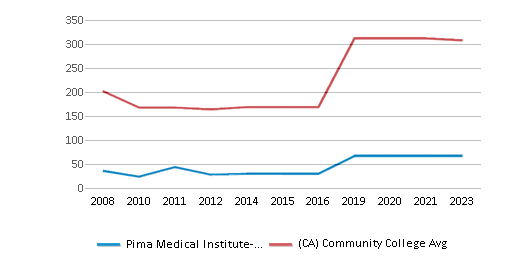
Number of Programs Offered
8
12
Student Body
The student population of Pima Medical Institute-Chula Vista has grown by 23% over five years.
The student:teacher ratio of 15:1 has increased from 11:1 over five years.
The Pima Medical Institute-Chula Vista diversity score of 0.55 is less than the state average of 0.70. The school's diversity has declined by 7% over five years.
Total Enrollment
1,038 students
2,311 students
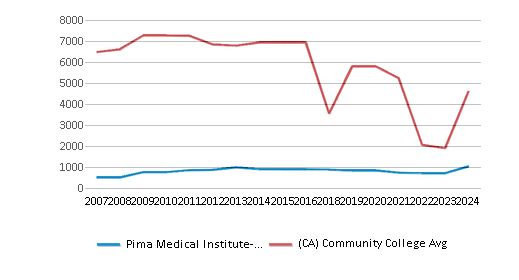
Student : Teacher Ratio
15:1
32:1
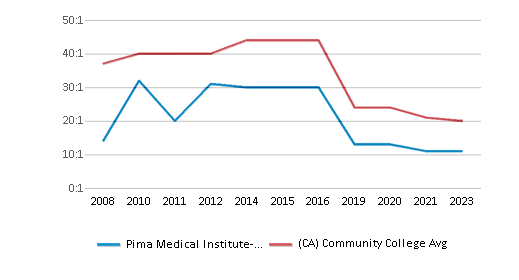
# Full-Time Students
1,038 students
1,232 students
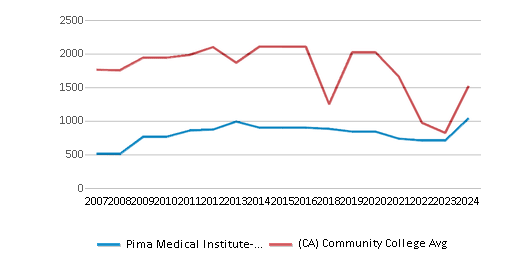
# Part-Time Students
n/a
8,299 students
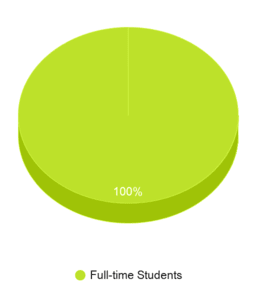
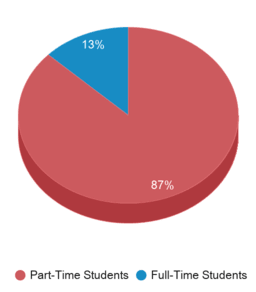
# Enrollment Undergraduate
103 students
240 students
# Full-Time Undergraduate Students
1,038 students
1,155 students
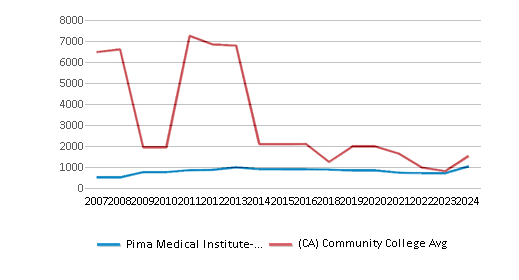
# Full-Time Graduate Students
n/a
63 students
# Part-Time Undergraduate Students
n/a
8,457 students
# Part-Time Graduate Students
n/a
10 students
Total Dormitory Capacity
n/a
140 students
% American Indian/Alaskan
n/a
n/a
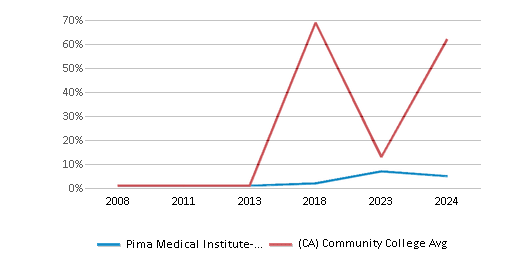
% Asian
8%
13%
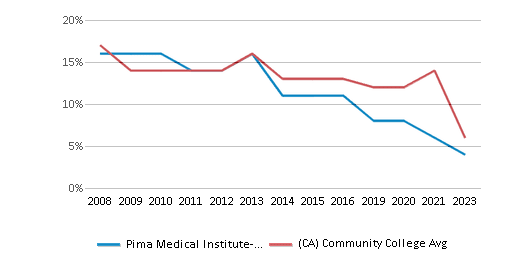
% Hispanic
64%
47%
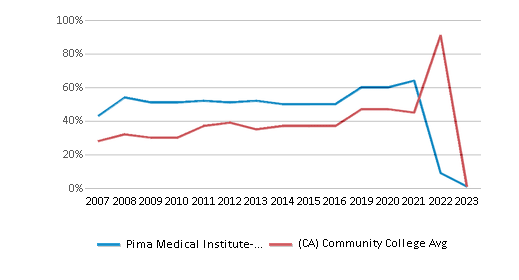
% Black
5%
7%
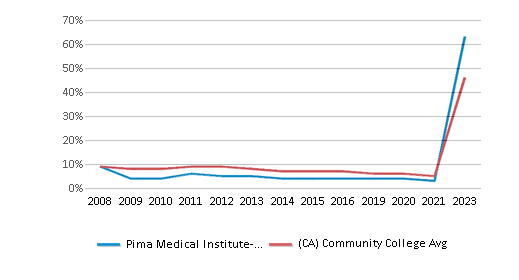
% White
16%
23%
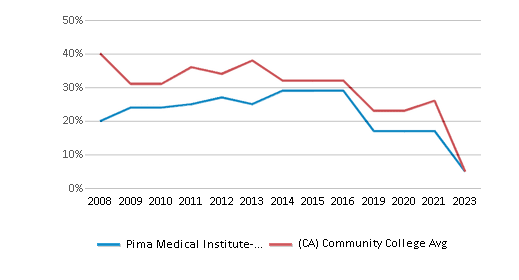
% Hawaiian
n/a
1%
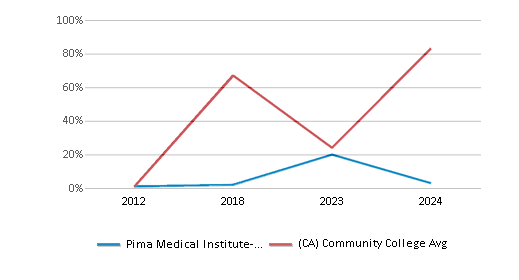
% Two or more races
6%
5%
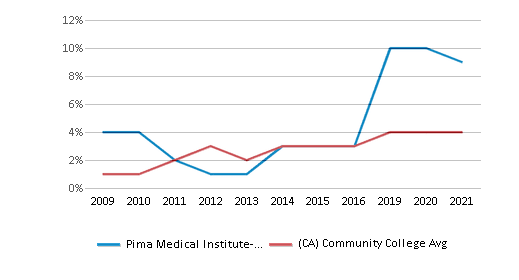
% Non Resident races
n/a
1%
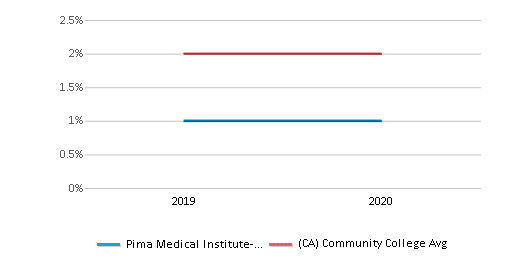
% Unknown races
n/a
3%
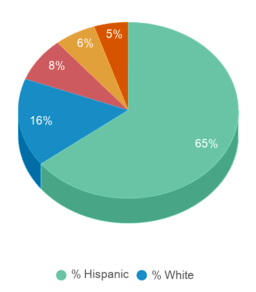
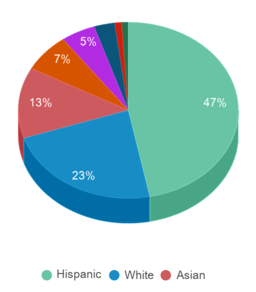
Diversity Score
0.55
0.70
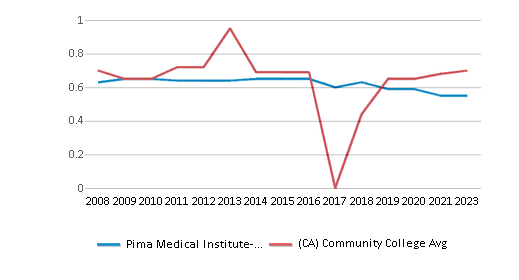
College Completion Rate (Students who graduate in less than 4 years)
0.5701%
0.4221%
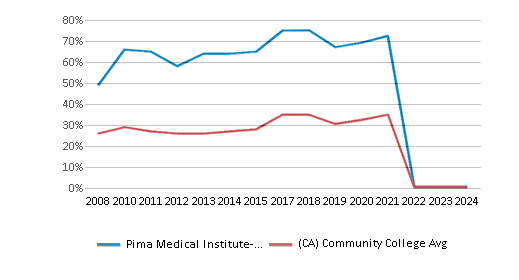
College Completion Rate (Students who graduate in 4 years or more than 4 years)
n/a
0.4304%
Average Graduate Earnings (10 Years)
$29,800
$34,700
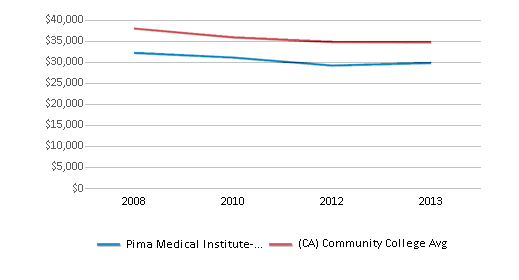
Tuition and Acceptance Rate
% Students Receiving Some Financial Aid
86%
85%
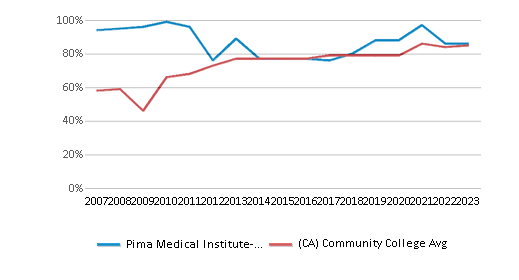
Median Debt for Graduates
$9,500
$10,500
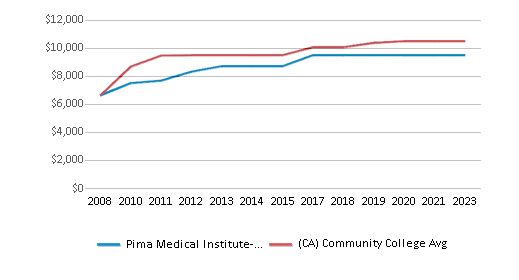
Median Debt for Dropouts
$4,718
$6,239
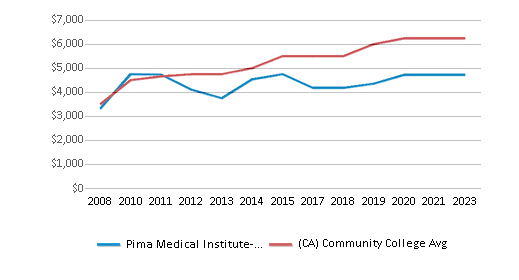
Acceptance Rate
n/a
92%
Source: 2024 (or latest year available) Integrated Postsecondary Education Data System (IPEDS)
Recent Articles

Obtaining Your Bachelor's Degree at a Community College
Explore the evolving landscape of community colleges offering bachelor's degrees, addressing affordability, accessibility, and workforce needs.

A to Z of Community College Certificates and Courses
From business and healthcare to technology and skilled trades, the article showcases the breadth of options available to students seeking to enhance their knowledge, develop new skills, or pursue career advancement.

What is a Community College?
This comprehensive guide explains what a community college is, its history, and its role in higher education. It covers the types of programs offered, differences from four-year colleges, benefits of attending, and important considerations for prospective students, providing valuable insights for those exploring educational options.






